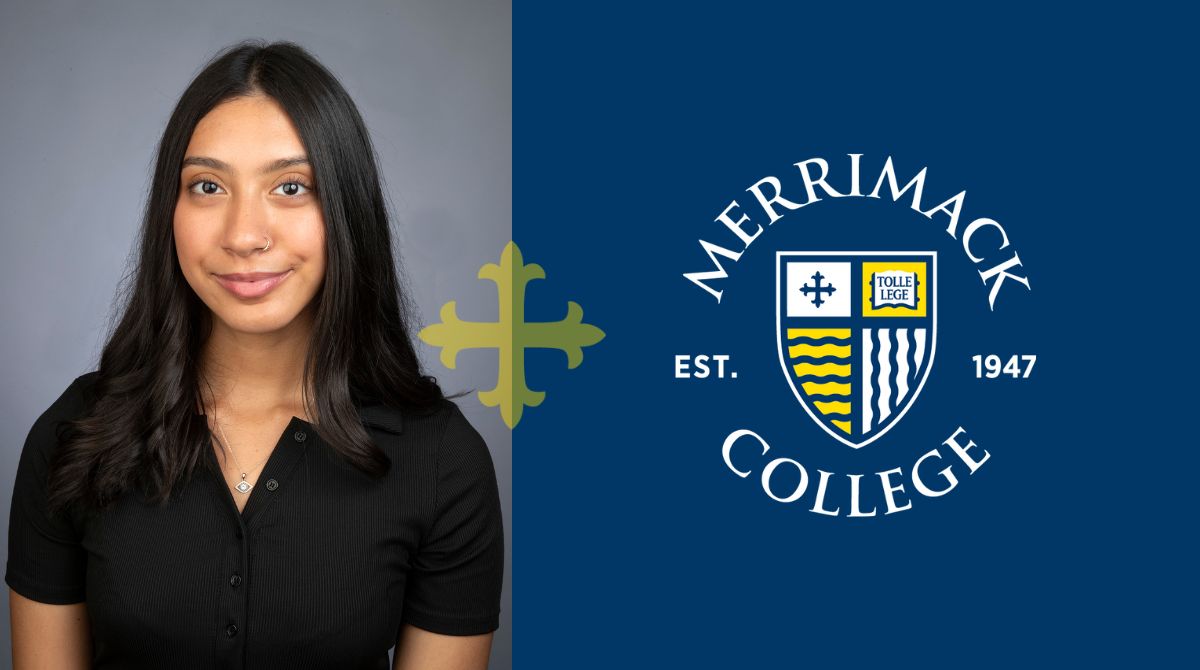GIRARD SCHOOL OF BUSINESS
SCHOOL OF EDUCATION AND SOCIAL POLICY
SCHOOL OF ARTS AND SCIENCES
SCHOOL OF ENGINEERING AND COMPUTATIONAL SCIENCES
SCHOOL OF NURSING AND HEALTH SCIENCES
Rooted in Augustinian values and social justice, Merrimack’s two-year graduate degree in social work is designed to prepare you to be an agent of positive change and transform the society in which you live. You will graduate with a master’s degree in social work ready to meet initial social work licensure requirements.

Learn about the Merrimack College community, application process, financial aid, your program's curriculum, professional opportunities, fellowships and more!
In addition to being the only MSW degree program in the Merrimack Valley, our program stands out for its:
Our master of social work is a 2-year, 56-credit advanced generalist program with many elective options. We also offer a 3 to 4-semester, 36-credit advanced standing program for students who have earned a Bachelor of Social Work degree from a Council on Social Work Education (CSWE) accredited institution.
Breaking new ground at Merrimack College, all faculty in the master’s degree in social work are highly trained and educated professionals excited to help develop the future of social work in the Merrimack Valley. In addition to being published scholars and leaders in local, regional and national social work agencies and organizations, they also use their expertise and experiences to guide you into the field.
Merrimack’s social work graduate program creates and provides students with transformative learning experiences in and out of the classroom that positively impact children, youth, families and the greater society. You will engage in a minimum 900 hours of hands-on practical experience in a local school, community agency, nonprofit, health or mental health center, or another relevant social service-type agency or institution.
Merrimack’s MSW program focuses on access, equality, social and economic justice, as well as ethical and reflective practices. Our program produces leaders who demonstrate the knowledge and skills of advanced direct social work practice. Upon graduation, you’ll be well equipped to respond to the need for services that promote social, economic and political justice for all groups, especially those confronting discrimination and oppression.
*Full-time students are required to apply by July 1 to begin their social work field placement in September.
**It is recommended that part-time students apply by the priority application deadline of August 1.
Our MSW degree program is an advanced generalist program with an emphasis on interdisciplinary collaboration. You will have the option to take electives within specializations that will lead you to gain knowledge within a specific practice area. Depending on the specialization you select, you may be assigned a field educational experience within the corresponding practice area. You can select from a variety of specializations, including:
Through Merrimack’s Master of Social Work, you will learn both in the classroom and in real-world settings. CSWE requires MSW students to spend at least 900 hours in the field. Merrimack’s MSW program staff will assist students in securing a field educational experience that will provide outstanding real-world, social justice-based work.
In addition, our social work program provides you with full preparation for taking the initial social work license exam. You will learn how to:
The U.S. Bureau of Labor Statistics (BLS) projects above-average growth in the social work job market, with positions expected to increase by 13 percent over the next decade. As a master of social work professional, you will be joining an exciting field where some of the fastest-growing areas include working with children and families in schools, hospitals, community agencies, non-profit organizations and state agencies.
Social workers are employed in a wide variety of institutions. The primary mission of social work is to enhance human well-being and help meet the basic human needs of all people, especially those who are vulnerable, oppressed, or living in poverty. Social workers promote social justice and change with and on behalf of clients. Most social service agencies (nonprofit, state, and federal) seek master’s level social workers in order to provide the level of service and care required and to bill insurance companies for services provided.
Upon completing the master’s degree in social work, students are license-eligible. At the master’s degree level, the Commonwealth of Massachusetts has two different social work licensing levels – Licensed Independent Clinical Social Worker (LICSW) and Licensed Certified Social Worker (LCSW). All of the licensing requirements and exams are managed by the Massachusetts Board of Registration of Social Workers. Learn more here.
Merrimack College has achieved Candidacy for Accreditation by the Council on Social Work Education’s Commission on Accreditation.
Candidacy for a baccalaureate or master’s social work program by the Council on Social Work Education’s Commission on Accreditation indicates that it has made progress toward meeting criteria for the assessment of program quality evaluated through a peer review process. A program that has attained Candidacy has demonstrated a commitment to meeting the compliance standards set by the Educational Policy and Accreditation Standards, but has not yet demonstrated full compliance. Merrimack’s next Board of Accreditation visit will be in the spring of 2024 and the program will be reviewed again at the October 2024 BOA meeting.
Students who enter programs that attain Candidacy in or before the academic year in which they begin their program of study will be retroactively recognized as having graduated from a CSWE-accredited program once the program attains Initial Accreditation. Candidacy is typically a three-year process and attaining Candidacy does not guarantee that a program will eventually attain Initial Accreditation. Candidacy applies to all program sites and program delivery methods of an accredited program. Accreditation provides reasonable assurance about the quality of the program and the competence of students graduating from the program.
As part of the on-going accreditation process, the Council on Social Work Education (CSWE) requires all programs to report the assessment results of a series of competencies.
The MSW degree program welcomes interested students with bachelor’s degrees in all fields.
You do not need to have a BSW or BA in a social science or liberal arts discipline to earn an MSW. You must fill out the graduate school application, write an essay about your desire to be a social worker, write a personal statement and submit two letters of recommendation. You should have a minimum overall GPA of 3.0.
There is no fee to apply, and there is no GRE requirement. However, we encourage you to submit test scores if you feel they will support or enhance your academic background.
In accordance with CSWE policy, the MSW program at Merrimack College does not grant social work course credit for life experience or previous work experience.
Tune in to hear Zahra Ahmadi, a current student, discuss her path from Afghanistan to pursuing graduate studies in the United States. Throughout the episode, she offers valuable insights for international students, recounts her fellowship involvement, and provides helpful tips for prospective MSW students. If you’re curious about the Master of Social Work, this is a must-listen!

Contact the Merrimack College Office of Graduate Admission at graduate@merrimack.edu.
Social work fellowships can reduce your tuition by 50 percent or more. Scholarships can provide additional support to limit your expenses and debt burden.
Create your account to get started. Start your Master of Social Work today.
"*" indicates required fields
Orientation Coordinator Jandeliz Hernandez ‘25 helped welcome Merrimack’s newest students during the two-day event.
